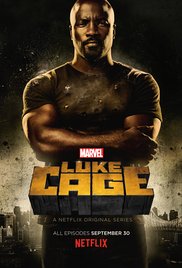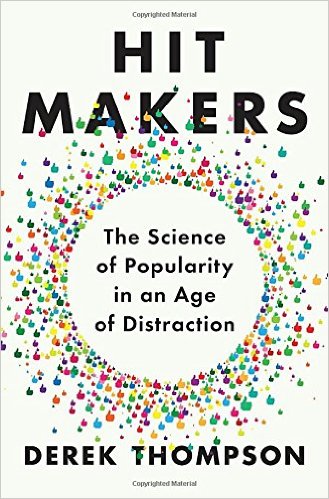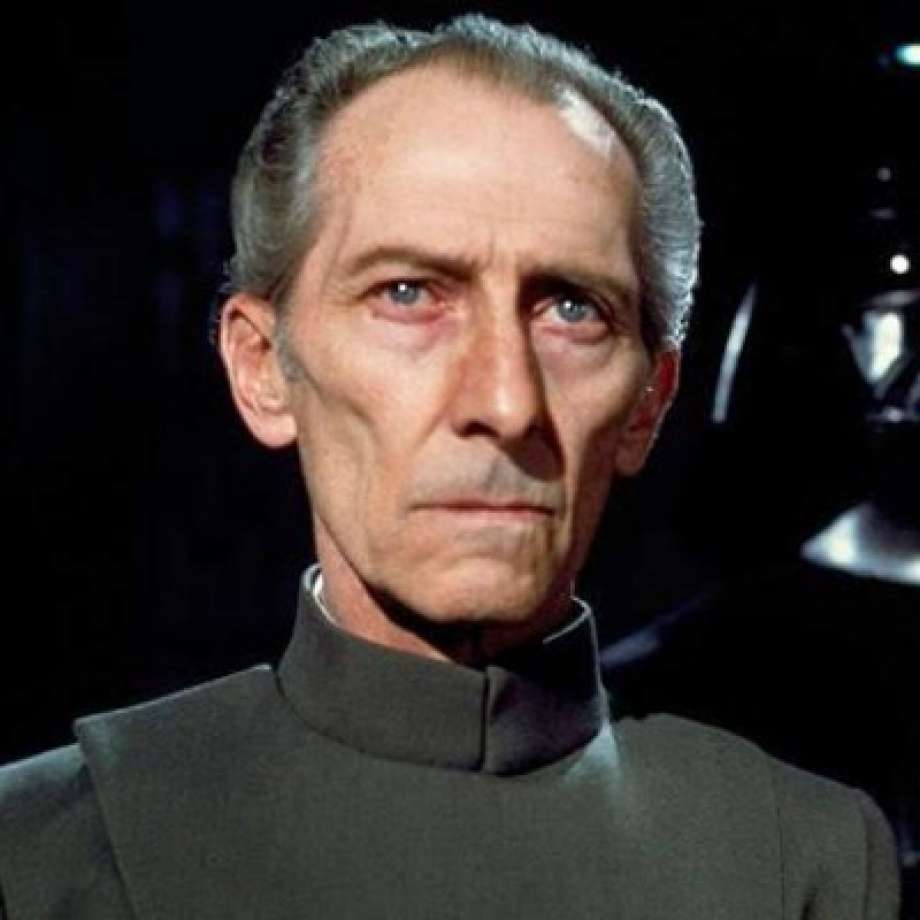Category: Television
Excerpt from my chat with Ezra
Here is one bit, from the rapid fire back-and-forth:
Ezra Klein
The rationality community.
Tyler Cowen
Well, tell me a little more what you mean. You mean Eliezer Yudkowsky?
Ezra Klein
Yeah, I mean Less Wrong, Slate Star Codex. Julia Galef, Robin Hanson. Sometimes Bryan Caplan is grouped in here. The community of people who are frontloading ideas like signaling, cognitive biases, etc.
Tyler Cowen
Well, I enjoy all those sources, and I read them. That’s obviously a kind of endorsement. But I would approve of them much more if they called themselves the irrationality community. Because it is just another kind of religion. A different set of ethoses. And there’s nothing wrong with that, but the notion that this is, like, the true, objective vantage point I find highly objectionable. And that pops up in some of those people more than others. But I think it needs to be realized it’s an extremely culturally specific way of viewing the world, and that’s one of the main things travel can teach you.
There is much more at the link, entertaining throughout, with links to the full podcast as well.
Making public goods excludable again
One of Beijing’s busiest public toilets is fighting the scourge of toilet paper theft through the use technology – giving out loo roll only to patrons who use a face scanner.
The automated facial recognition dispenser comes as a response to elderly residents removing large amounts of toilet paper for use at home.
Now, those in need of paper must stand in front of a high-definition camera for three seconds, after removing hats and glasses, before a 60cm ration is released.
Those who come too often will be denied, and everyone must wait nine minutes before they can use the machine again.
But there have already been reports of software malfunctions, forcing users to wait over a minute in some cases, a difficult situation for those in desperate need of a toilet.
The camera and its software have also raised privacy concerns, with some users on social media uneasy about a record of their bathroom use.
Here is the full story, via Michelle Dawson.
My Conversation with Malcolm Gladwell
He was superb, here is the transcript, audio, and video. We considered satire as a weapon, Harvard, long-distance running, Washington vs. NYC, Daniel Ellsberg and Edward Snowden, Caribbean culture and intellectual history, and of course Malcolm’s mom, among other topics. His answers are so fluid and narrative they are hard to excerpt, but here is one bit from him:
COWEN: Overrated or underrated, the idea of early childhood intervention to set societal ills right?
GLADWELL: Overrated because to my mind it’s just another form . . . it became politically impermissible to say that certain people in society would never make it because they were genetically inferior. So I feel like that group, it’s like, “All right, we can’t say that anymore. We’ll just move the goalpost up two years.” And we’ll say, “Well, if you don’t get . . .” Or three years — “If you don’t get the right kind of stimulation by the time you’re three, basically it’s curtains.”
Why is that argument, which we decided we didn’t like it when they set the goalpost at zero, and somehow it’s super-important and legitimate and chin-stroking-worthy when they moved the goalpost to three. Truth is, people, it’s not over at three any more than it was over at zero. There are certain things that it would be nice to get done by the age of three. But if they’re not, the idea that it’s curtains is preposterous. It’s the same kind of fatalism that I thought we had defeated in the . . .
If you want to say that the goalpost should be at 30, then I’m open to it.
I asked what changes he would make to higher education:
GLADWELL: OK. I would establish a set of baseline criteria for admissions, and then I would have a lottery after that. So if you’re in the top 2 percent of your high school class — 5 percent, whatever cutoff we want — following test scores at a certain point, whatever cutoff we want, some minimum number of other things you do — you just go into the pot and we’re pulling out names. I’d probably triple or quadruple the size in the next 10 years, open campuses — probably two other campuses in the United States, one overseas.
I had this idea, I’m not sure how you’d do it, where I think that it would be really, really useful to ban graduates of elite colleges from ever disclosing that they went to an elite college.
I thought the Steve Pearlstein material was perhaps Malcolm’s highlight, but you need to read it straight through.
Here is a very short bit from me:
Most of my questions will be quite short, but my first question will be really, really long. Since everyone knows you and your work so well, I asked myself, “Who is Malcolm Gladwell?” And I tried to come up with an answer. I’ll give you my answer, and then you can correct me or add to that, and this will take a little while.
Definitely recommended.
Derek Thompson’s *The Hit Makers*
What makes one song, TV show, or consumer product a hit, and the other not? Derek’s new book is probably the very best exploration of this question. Perhaps not surprisingly, I interpret much of his answer in terms of complacency: people want something that appears a bit different, but actually is deeply conservative and keeps them running in place (my take, not exactly his). In any case, what is the right blend of new and old to captivate an audience?
Here is one good review of the book. You can buy it here.
*Exception Taken: How France Defied Hollywood’s New World Order*
That is the new and excellent book by Jonathan Buchsbaum, offering the first comprehensive history of the debates over free trade and the “cultural exception,” as it has been called. It is thorough, readable, and goes well beyond the other sources on this topic.
To be sure, I disagree with Buchsbaum’s basic stance. He views “advertising dollars” as something attached to Hollywood movies like glue, giving them an unassailable competitive advantage, rather than an endogenous response to what viewers might wish to watch. The notion that French or other movie-makers could possibly thrive by innovating and exploring new quality dimensions seems too far from his thought. And he writes sentences such as: “France sought quickly to regulate multiplex development,” yet without wincing.
Perhaps his best sentence is the uncharacteristic: “Other commentators during the 1980s observed wryly that the only real European films were U.S. films, for only U.S. films succeeded in crossing borders in Europe.”
He spends a fair amount of time criticizing me, usually a positive feature in a book. Furthermore, he delivers very strongly on the basic history and narrative, and draws upon a wide variety of sources. So this one is definitely recommended to anyone with an interest in these topics.
The value of presidential attention in an age of mechanical reproduction
MSNBC and Fox News are capitalizing on President Donald Trump’s TV watching habits, dramatically increasing issue advocacy advertising rates in recent weeks as companies and outside groups try to influence Trump and his top lieutenants.
The ad rates for “Morning Joe” have more than doubled post-election, according to one veteran media buyer. Trump, who reportedly watches the show most mornings, has a close relationship with “Morning Joe” host Joe Scarborough, and they talk regularly.
Fox News’ “The O’Reilly Factor” and other primetime programs on Fox News have boosted their rates about 50 percent. Trump also is a frequent viewer of the network’s primetime shows.
“The president’s media habits are so predictable, advertisers migrate to those areas,” said one media buyer.
One prominent D.C. consultant said some of his clients, including a big bank and major pharmaceutical company, were negotiating this week to buy ads on “O’Reilly” and “Morning Joe” because they knew they had a good chance of reaching the president.
That is from Daniel Lippman and Anna Palmer, via Kevin Lewis.
“I Didn’t Read Tyler Cowen’s The Complacent Class Because Things Are Going Pretty OK for Me”
Got an advance copy. Between my non-manual-labor job, Netflix’s excellent recommendations (The OA is so good), and virtue-signaling to my in-group on Twitter, I guess I just wasn’t feeling it.
Besides, if I did read The Complacent Class, I’d have to write a review. The review would introduce readers to a bunch of new and challenging ideas about how Americans are losing the desire to embrace rapid change, and then I would explore some of the unexpected ways our complacency hurts us as a country, possibly challenging the author, or adding to his thesis with my own insights. Oh, people say they want new and challenging ideas, but they don’t. They’re happy with their current ideas, and why should I make anyone unhappy? No one ever considers whether the boat wants to be rocked.
Or is that Cowen’s game? To point out that our lack of urgency and general NIMBY-ism have led to less migration, more segregation, more inequality, dulled creativity, increased conformity, and faded activism, all of which portends a coming unavoidable chaos? What’s he after? Is Cowen trying to jolt us out of our zombie states so we can live in the sci-fi future of no diseases and flying cars and robot monkey butlers we all dreamed about when we were kids? I don’t know, man. Maybe. Anything’s possible, right? I literally didn’t read the book.
Here is the link. The terms from the previous promotion still hold, you don’t even have to read it.
Peter Cushing, *Rogue One*, and “fake news” will soon get worse
I was watching the excellent Rogue One when suddenly I thought “Wow, they sure found an actor who looks just like Peter Cushing.” As the scene, progressed my thoughts changed to “Tyler, are you sure that Peter Cushing passed away?” As I watching the credits, I saw a thanks to the “Estate of Peter Cushing, OBE,” and so I went back to wondering about the actor, but then why did they thank the estate?
…the face of Peter Cushing, the imposing British actor who died in 1994, lends an especially memorable presence to “Rogue One” by helping to “reprise” his “Star Wars” character, Grand Moff Tarkin, the Imperial governor who practically rules by force of glare, intonation and cheekbone.
…Under director Gareth Edwards, “Rogue One” represents another marker in the decades-long quest for the best CGI-fashioned human replicas. The filmmakers auditioned actors to “play” Cushing’s Tarkin, settling on BBC soap actor Guy Henry. This Tarkin is thus free of the dreaded “dead eye” effect. Lo, though the effects wizards walk through the “uncanny valley,” Tarkin registers as quite alive — even if his facial proportions sometimes read as ever so slightly off from the Original Trilogy. We are nearing the reality of a fully fleshed-out, CGI-enhanced performance long after an actor has passed.
If “Rogue One” wins an Oscar for effects, Cushing should be in no small part why.
When will the slope start where amateur video becomes significantly less trustworthy as well? Or even just “But Mom, I saw him do it on TV!” While we’re at it, how about a symphony orchestra conducted by “Beethoven”?
Will Sylvester Stallone chair the National Endowment for the Arts?
Donald Trump has drawn ‘first blood’ in the search for his incoming administration’s senior arts role – by tapping up Rambo legend Sylvester Stallone.
Sources have told DailyMail.com the president-elect sees Hollywood icon Stallone as the perfect choice to make art great again.
The likely position would be Chairman of the National Endowment for the Arts, a federal agency that doles out funds to aspiring artists and creative projects.
Here are my earlier suggestions for how Trump could improve government support for the arts. Here is an article on Stallone as painter, with photos. Furthermore, Raphael once painted Stallone. His favorite perfume is Bijan for Men by Bijan. I say this is probably a good pick, as it would bring glamor and attention to a much-neglected agency.
Addendum: Judge Dredd is an excellent movie!
*Westworld* as Haitian Hegelian instantiation
I don’t want to give you spoilers, so I’ll put key points behind links — read them at your peril. The ending of last night’s finale reminded me of this historical episode in 1804. Bernard reminds me of this Haitian figure, this fellow too. Anthony Hopkins is an updated version of the impresario from this 1932 movie. As for the Hosts:
Haitian slaves believed that dying would release them back to lan guinée, literally Guinea, or Africa in general, a kind of afterlife where they could be free. Though suicide was common among slaves, those who took their own lives wouldn’t be allowed to return to lan guinée. Instead, they’d be condemned to skulk the Hispaniola plantations for eternity, an undead slave at once denied their own bodies and yet trapped inside them—a soulless zombie.
Zombies can change their “status” through a number of means. Don’t show them the ocean!
And that symbol everyone is always asking about and trying to discern the meaning of? That is a vevé, obviously.
And to frame the whole thing, here is Hegel on the master-slave dialectic.
Vertical Integration, Market Foreclosure, and Consumer Welfare in the Cable Television Industry
That is the title of a 2001 AER piece by Tasneem Chipty, here is the abstract:
I examine the effects of vertical integration between programming and distribution in the cable television industry. I assess the effects of ownership structure on program offerings, prices, and subscriptions, and I compare consumer welfare across integrated and unintegrated markets. The results of this analysis suggest two general conclusions. First, integrated operators tend to exclude rival program services, suggesting that certain program services cannot gain access to the distribution networks of vertically integrated cable system operators. Second, vertical integration does not harm, and may actually benefit, consumers because of the associated efficiency gains.
Out of date, yes, but still evidence that the proposed AT&T and Time-Warner merger is unlikely to damage the interests of consumers. When there is some market power at each step along the supply chain, vertical integration typically lowers margins and prices, thereby increasing consumer surplus.
For the pointer I thank John Chilton, who also points us to this review chapter by Paul Joskow. Here is a good James B. Stewart (NYT) piece on how antitrust thinking is moving backward these days, away from science more toward mood affiliation.
The proposed AT&T and Time-Warner merger
The deal may “feel wrong” to a lot of people, but for the regulators it ought not to be a big deal:
AT&T’s proposed acquisition of Time Warner…is considered “vertical” because the two companies largely do not compete against each other but operate on the same supply chain.
This is the bottom line:
“By standard antitrust metrics, this deal should be O.K. in Washington,” said Paul Gallant, a technology, media and telecommunications policy analyst with Cowen & Company. “But the Democratic Party is moving left, and if Clinton wins, this could become an early test for her ‘tougher on business’ rhetoric.”
The negative arguments are speculative or quite a stretch:
AT&T could make it more expensive for its competitors to gain access to Time Warner’s content or give preferential treatment to its own programming, said John Bergmayer, senior counsel at Public Knowledge, a digital rights advocacy group.
That is all from Leslie Picker and Cecilia Kang at the NYT. I would stress that “entertainment” and “content” are sectors where choices have exploded more or less without precedent. If the goal is to stop Time-Warner content from spreading to multiple sectors of the consumer media universe, I don’t see this one as a winner.
More generally, it is hard to see where the efficiencies from the deal are supposed to come from. About the recent Bayer and Monsanto proposed merger I wrote:
There is a well-known academic literature, dating to the early 1990s, showing that acquiring firms usually decline in value after tender offers, especially after the biggest deals. Mergers do not seem to make companies more valuable or efficient.
Why then do so many mergers and acquisitions happen? Well, some of them do pay off (Google buying YouTube), but also many managers engage in empire-building by increasing the size of their companies, even at the expense of the shareholders. Another possibility is what economists call “winner’s curse,” namely that the winner of an auction or contest or bidding war tends to be the person or institution most optimistic, and in fact overly optimistic, about the value at stake.
So from a social point of view, I doubt if there is so much at stake here.
Addendum: Matt Yglesias comments. And here is FT coverage.
The death of football, installment #1437
…the NFL is seeing its ratings tumble in the same way that the Olympics, awards shows and other live events have, falling more than 10 percent for the first five weeks of the season compared with the first five weeks of last season. A continued slide, executives say, could pose an even bigger danger: If football can’t survive the new age of TV, what can?
Football’s traditional TV audience “is never going to be what it was again,” said Brian Hughes, a senior vice president at Magna Global, which tracks audience and advertising trends.
The explosion of modern entertainment options, offered on more devices and at any time, has splintered American audiences and sped TV’s decline, Hughes said. “Sports seemed to be immune from it — it was live, the last bastion of broadcast television. But [the world] has caught up to it now.”
That is from Drew Harwell, and much of the decline seems to be coming from cord-cutting, audience fragmentation, and also the presence of a somewhat controversial election season, which has drawn some viewers (not me) to cable news.
What I’ve Been Watching: Knox, Cage, Westworld
Amanda Knox on Netflix is a shorter version of Making a Murderer. Shorter because there isn’t much evidence that Knox had anything to do with the murder of her  housemate. The documentary has extensive interviews with the lead investigator, a blowhard who likens himself to Sherlock Holmes but whose idea of deduction is that the murderer must have been a woman because the body was covered up. Surprisingly, the one clear sociopath isn’t the actual killer but the journalist whose lurid dispatches turned a tragic but ordinary murder into a witch hunt–a real Nightcrawler. Throw in some nationalism on both the Italian and U.S. sides and it’s not surprising that justice went awry. Trump has a cameo.
housemate. The documentary has extensive interviews with the lead investigator, a blowhard who likens himself to Sherlock Holmes but whose idea of deduction is that the murderer must have been a woman because the body was covered up. Surprisingly, the one clear sociopath isn’t the actual killer but the journalist whose lurid dispatches turned a tragic but ordinary murder into a witch hunt–a real Nightcrawler. Throw in some nationalism on both the Italian and U.S. sides and it’s not surprising that justice went awry. Trump has a cameo.
Luke Cage, also on Netflix, is the latest Marvel superhero story set in the same New York universe as Daredevil and Jessica Jones. Harlem is lovingly portrayed and the barbershop name dropping–Walter Mosley, Zora Neal Hurston, Crispus Attucks–and  various basketball, jazz, and rap references adds color. The central conflict, however, is flat. Super-strong, well-nigh invulnerable Cage is not evenly-matched by drug dealer-businessman Cottonmouth. Despite a watchable performance by Mahershala Ali, Cottonmouth is no Kingpin. Vincent D’Onofrio’s Kingpin had Shakespearean intensity, depth, and the physical power to battle a super-hero. Indeed, one of the things that made Daredevil special was that you could see his exhaustion and pain in every battle. Similarly, Jessica Jones’s nemesis, Kilgrave, was one of the most horrific characters ever seen on television (in a great understated performance by David Tennant) and Kilgrave had Jones under his thumb for much of the season. Super heroes need super villains. To be sure, there is pickup in the second half of Luke Cage, but it takes a long time to develop.
various basketball, jazz, and rap references adds color. The central conflict, however, is flat. Super-strong, well-nigh invulnerable Cage is not evenly-matched by drug dealer-businessman Cottonmouth. Despite a watchable performance by Mahershala Ali, Cottonmouth is no Kingpin. Vincent D’Onofrio’s Kingpin had Shakespearean intensity, depth, and the physical power to battle a super-hero. Indeed, one of the things that made Daredevil special was that you could see his exhaustion and pain in every battle. Similarly, Jessica Jones’s nemesis, Kilgrave, was one of the most horrific characters ever seen on television (in a great understated performance by David Tennant) and Kilgrave had Jones under his thumb for much of the season. Super heroes need super villains. To be sure, there is pickup in the second half of Luke Cage, but it takes a long time to develop.
Westworld (HBO)–this is the one that you must watch. The first two episodes have been remarkable. Every scene has something to see or to think about. Audience expectations are continually subverted. The cinematography is stunning.
One characters says “That’s what I love about this place all the secrets, all the little things I never noticed even after all these years. You know why this place beats the real world…in here every det ail adds up to something.” Very meta. The shots also speak to the structure of the plot. Look at this amazing shot of the control building–levels of meaning.
ail adds up to something.” Very meta. The shots also speak to the structure of the plot. Look at this amazing shot of the control building–levels of meaning.
It does not pass notice that it’s bright and shiny on top but the lower levels–the subconscious–are dark, moist, subterranean. We are told that WestWorld is a maze, a maze literally and figuratively, in our heads.
Westworld also challenges us with questions. Who are we? If we visited Westworld would we be the good guys or the bad guys? How many of us secretly harbor the desire to do evil and are restrained only by fear of punishment? What kind of Zimbardo experiment is Westworld?
Or are we the operators of Westworld who treat other people (?) as mere means and not as ends in themselves? Parts of Westworld look like an abattoir and from one perspective there are mass rapes.
Or are we the robots, living in a simulation, a reality of someone else’s construction? And what is going on with the corporation? The ultimate god?
The executive producer of Westworld is Jonathan Nolan, brother of Christopher, and writer or co-writer of Memento, The Prestige, The Dark Night and Interstellar.
We are only two episodes in but so far this is thrilling art in action.
Son of Zorn on Online Education
https://youtube.com/watch?v=YVF2r_KwQS8%3Fautoplay%3D1%26start%3D16%26end%3D80%26controls%3D1%26version%3D3
Hat tip: Nicholas Tabarrok


